The most disappointing games of the decade
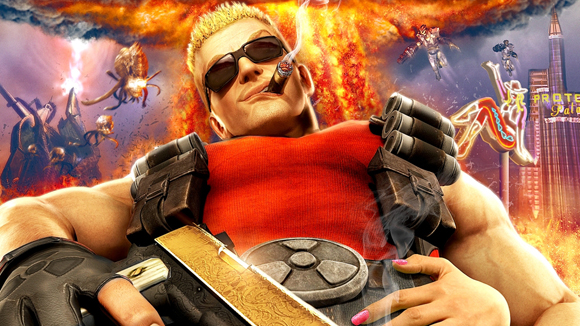
When Mega Man creator Keiji Inafune announced that he was creating a spiritual successor to the Blue Bomber that would again pit a young cyborg against a band of renegade robots and, most importantly, that he was going to crowdfund it, the internet lost its shit.
Inafune hit his Kickstarter goal of $900,000 four days after it launched. Within a month, he raised more than four times that amount – a little over $4 million. With the additional cash in hand, he promised additional characters, more levels and new versions of the game as more and more people donated to the campaign.
By the time it was done, over 34,000 gamers donated $20 to the game sight-unseen, while over 3,000 donated $99 for the game and its DLC.
Just like we had done before with so many disappointments in our lives, we all leapt on-board the hype train without any idea of where it was going.
That game finally came out last month on PS4, Xbox One and PC, and it was absolutely panned. While some outlets meekly praised the game for its interesting combo mechanics, most outlets did not, calling it some variation of "an insult to thousands of backers."
Keiji Inafune has since apologized for the game, telling an audience on Twitch that he was alone to blame for Mighty No. 9's shortcomings. But while Inafune's masterpiece-turned-monster is the most recent game that broke our hearts, it's not alone.
To remind Inafune that we've all messed up at some point, and as a public service announcement for gamers to be a bit more cautious next time around, I've assembled a list of the top 11 games that have built us up only to break us down in the past decade.
Sign up for breaking news, reviews, opinion, top tech deals, and more.
Mighty No. 9
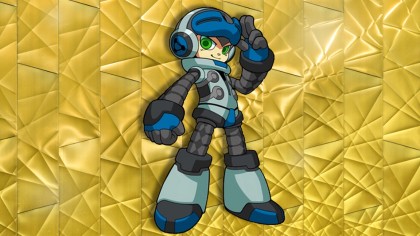
What we were pitched: It's hard not to get the chills when you first hear the pitch for Mighty No. 9: You play as Beck, the ninth in a line of powerful robots, and the only one not infected by a mysterious computer virus that has caused mechanized creatures the world over to go berserk.
It is so quintessential, old-school Mega Man that it feels like it should be sold on a cartridge, not a disc.
Inafune claimed that it would be like reliving our childhood but would feature additional multiplayer modes, totally unique artwork and that difficult-but-addictive gameplay that we remembered growing up.
What we were sold: In short? None of that. Putting it kindly the game is confused, not aesthetically pleasing to look at and not very fun to play.
Spore
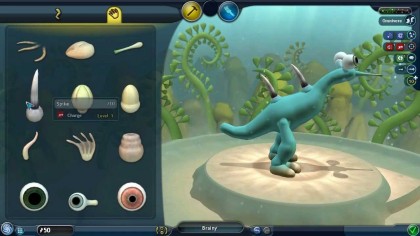
What we were pitched: This foible comes from Maxis-cofounder Will Wright, the fun-loving creator of The Sims and the original SimCity. Wright had told us to picture an entire galaxy that you could control with little micro-organisms. Spore was about taking one-cell creatures out of the oceans from where they were born and evolving them, generation-by-generation into a hyper-intelligent species that could travel around the galaxy conquering worlds or, for more pacifist players, simply enjoying the sights and sounds of an ever-evolving world.
What we were sold: What makes Spore different than every other game on this list is that, surprisingly, it actually delivered on its promises. You really could create any number of strange, wild and wonderful creatures and give them their own culture and identity.
The only problem was that the game wasn't much fun.
Taking a species from its eukaryotic form to its fully functioning world-dominating one took a mere three hours and, once you reached the most evolved form, mostly just puttered from one similar-looking planet to the next. Some critics found Spore a cute, ephemeral break from games like Call of Duty that were just starting to take over the mainstream. Others wanted their money back.
Watch_Dogs
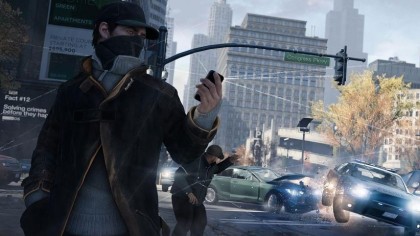
What we were pitched: We first found out about Watch_Dogs during Ubisoft's 2012 E3 keynote, a game that we were told was essentially a thinking man's Grand Theft Auto. It had a massive open-world environment that was based on Chicago. But, instead of going on killing sprees and avoiding police, it would be more about taking down a corrupt government agency using their own information network. Comparisons were drawn immediately to The Matrix, only then we realized...
What we were sold: It's Grand Theft Auto with a hacking mini game. Instead of a deep, intricate story we got a man on a revenge mission and instead of The Matrix we got the equivalent of a tacky made-for-TV hacking montage. It wouldn't have been so bad if there was more to do in virtual Chicago other than spy on the city's largely forgettable citizens and drive around increasingly fuzzy-looking streets. Too bad there wasn't.
Mass Effect 3

What we were pitched: The epic conclusion to a space odyssey that would rival – and in some ways surpass – Star Trek in its depiction of the final frontier. The original Mass Effect won critical acclaim for giving players a choice in which path they wanted to go down instead of forcing players to make simplified binary decisions. The second title, Mass Effect 2, carried over a save from the original game and built on its predecessor's legacy by adding new mechanics that made the game's combat more fluid, and role-playing system more complex. We had expected the third game, the last in the epic trilogy, to bring it all to a satisfying close.
What we were sold: Mass Effect 3, for the most part, delivered. Really, around 99% of the game was as thrilling, action-packed and as memorable as we had hoped it was going to be.
But the last 10 minutes of Mass Effect 3 caused hordes of gamers to take to the internet to tell Bioware, the game's developer, that they were *bleeped* angry.
I won't ruin the last moments here, just in case you Mass Effect 3 is still sitting in your backlog pile, but the short of it is that the only difference between the outcomes of your final gut-wrenching decision is a color of light. A series that was all about how choices impacted everything you do and, in the end, the only thing that changes is the color of a beam of light. Nicely done, guys.
Star Fox: Zero
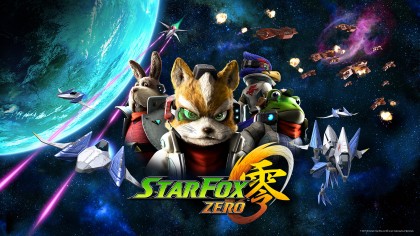
What we were pitched: A new Star Fox game that taps into your nostalgia by bringing you back to the Nintendo 64's heyday, but introduces new mechanics, better graphics and slightly refined controls that take advantage of the Wii U.
What we were sold: One of the most polarizing Star Fox titles ever made – and that's really saying something considering that this is a series containing a third-person adventure game and Star Fox: Command, where the primary control scheme was tapping a map with a stylus.
Instead of re-imagining the world of Star Fox 64, Star Fox Zero is a pale imitation of the world we knew and loved 20 years ago. And instead of "tweaked controls" we got overwrought, overly complicated and – in some instance – completely unusable ones.
Not everyone feels like Star Fox Zero is a complete dud, but there's a vast swath of gamers who would've settled for the N64 version with HD graphics over Zero.
SimCity
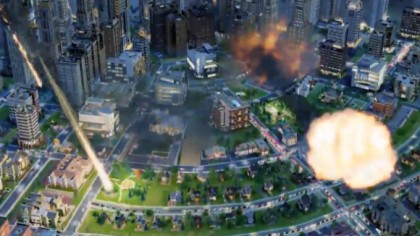
What we were pitched: SimCity 2013, also known as SimCity 5 or just SimCity, was billed as the reboot of the popular city-building franchise. Promises were made about better construction tools and overlays, on top of a more extensive trade mechanic in between cities. Oh, but the one small hitch is that the game always had to be online.
What we were sold: It turns out that small hitch was actually a huge problem. When the game launched, server issues prevented tens of thousands of civil engineering-hungry gamers from constructing the cities they had been dreaming of for months. EA made claims that the game wouldn't work without the lines of server code, only to be proven wrong by some tech-savvy gamers who edited the program to strip out the code.
The result? SimCity worked offline. For close to a week, gamers who shelled out $60 couldn't even play the game. Once everything was up and running the damage had been done and SimCity went down in the annals of the worst video game launches of all-time.
Lightning Returns: Final Fantasy XIII
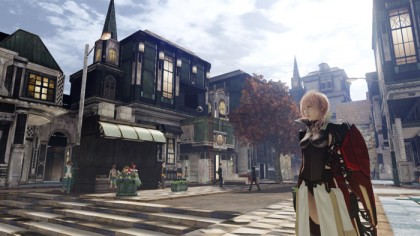
What we were pitched: Here's a time when the pitch – not the delivery – was the problem. Lightning Returns: Final Fantasy XIII was the third game in the Final Fantasy XIII series. That's three games set in a universe that many gamers didn't care for to begin with. Tack on the fact that the game was designed as a quasi-third-person adventure game, and this had "failure to launch" written all over it.
What we were sold: Exactly what was advertised. Square Enix recovered a bit more of the massive cash reserve it spent making the original Final Fantasy XIII game, but there weren't many who were pleased in the way it went about it.
Duke Nukem Forever
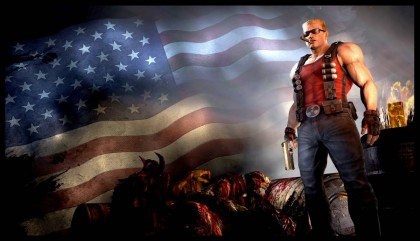
What we were pitched: Duke Nukem Forever is the physical manifestation of the words "development hell" – an industry term that denotes a game that has been perpetually stuck in development with dire consequences.
The pitch, though, for the record was supposed to be a sequel to Duke Nukem 3D, a beloved – if pretty lewd – game from the PC's Golden Days in the late '90s.
What we were sold: After 10 years and a handful of developers, Duke Nukem Forever just couldn't live up to its promises. Instead of a sassy reboot of a '90s icon, it was an ephemeral romp through some forgettable levels and a random strip club.
It was still a raucous adventure, but somewhere along the way Duke Nukem lost his fun, cool edge.
Godus
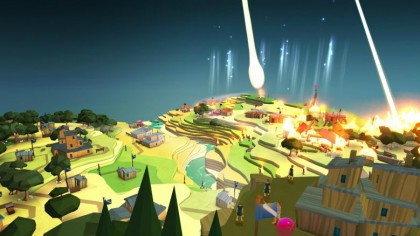
What we were pitched: Another Kickstarter-gone-awry, Godus had all the makings of a disaster: Legendary Game Developer claims he/she can make the game you loved 10/20/30 years ago, but better now.
In this case that developer was Peter Molyneux, founder of Lionhead Studios and creator of excellent franchises such as Black and White, Fable and Populous. The idea he brought to Kickstarter was the "best god game ever made" – Godus. It was to be a massively multiplayer PC game that would eventually extend to Mac, Mobile and, surprisingly, Linux.
What we were sold: Molyneux's 10-month timeline turned into two years, and the claims of creating the best god game diminished to "the best god game – on a mobile device with micro-transactions." The PC version wasn't half the game Molyneux played it up to be and, according to the Populus designer himself, we have the dog-eat-dog world of mobile gaming and a money-hungry publisher to thank for that.
Metroid: Other M
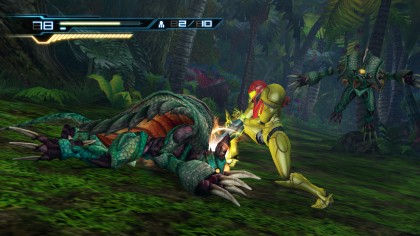
What we were pitched: This title could read "Any Metroid Game Since Prime" and still make sense. Unfortunately the Metroid series starring esteemed femme fatale bounty hunter Samus Aran just hasn't been all that good recently.
What we were sold: Metroid Other M, a third- and first-person action-adventure, fighting, side-scrolling and not side-scrolling game made by a partnership between Nintendo and Team Ninja, was the beginning of the end for it.
Aliens: Colonial Marines
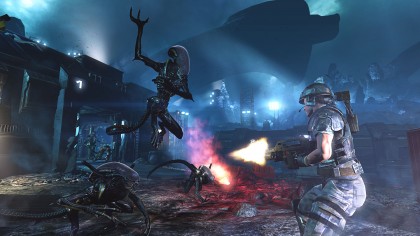
What we were pitched: It's rare that videogames end in lawsuits, yet Aliens: Colonial Marines did. SEGA, the publisher of the game, took actual legal action against Gearbox Software, the game's developer, for mismanaging what they had thought was going to be an easy cash-in on the Aliens franchise.
But the problem here wasn't the marketing of the game – which was handled poorly – or even the premise of the game – again, it wasn't ground-breaking to begin with.
The problem was with the demo first shown to gamers at E3 of 2011.
What we were sold: In the end, entire sections of the game were missing from that original demo. Instead of dark, moody ambience, Aliens Colonial Marines felt like a Halo clone that no personality of its own. Something had clearly changed in between the demo shown in 2011 and the final game gamers and critics hated in 2013.

Nick Pino is Managing Editor, TV and AV for TechRadar's sister site, Tom's Guide. Previously, he was the Senior Editor of Home Entertainment at TechRadar, covering TVs, headphones, speakers, video games, VR and streaming devices. He's also written for GamesRadar+, Official Xbox Magazine, PC Gamer and other outlets over the last decade, and he has a degree in computer science he's not using if anyone wants it.